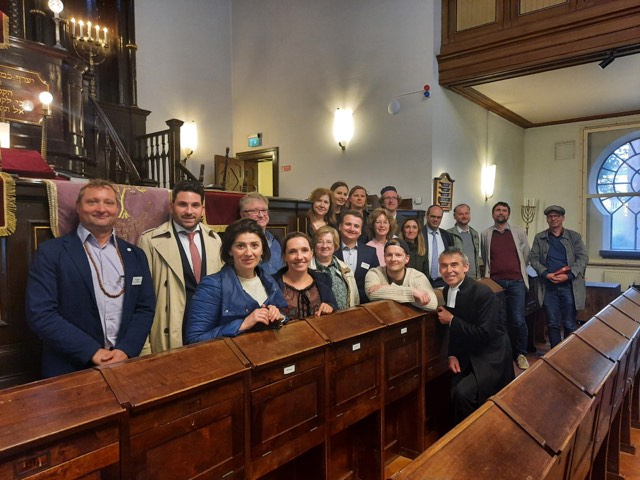Press Release No:13/22
24 June 2022
Brussels
Security, artificial Intelligence and human rights. What do social and technological developments in these three areas imply for the future of free and at the same time secure societies? This important question was explored in depth by participants from across Europe at the 9th CEC Summer School on Human Rights, held as a hybrid event from 13-16 June in Malmö, Sweden.
“We need to help people understand new realities that are posing ethical questions, especially by keeping Christian ethical principle as key in this debate,” emphasised Johan Arvid Tyberg, Bishop of Lund in the Church of Sweden, in his opening address. This, he explained, makes it necessary for churches to be aware of trends related to the contemporary developments in the area of Artificial Intelligence (AI).
“European states must empower its people so they can challenge decisions related to AI that are discriminatory and have potential to violate human rights,” said CEC President Rev. Christian Krieger, who emphasised the links between theological, anthropological and ethical issues of AI.
The summer school explored different aspects such as moral and ethical implications of technology, such as risks to individual privacy when using facial recognition in public places, or potential discrimination when it is left to algorithms to determine access to social services and healthcare. It is therefore pertinent, but – due to rapid progress in a complex field – also very difficult task for national and European legislators to create a regulatory framework which safeguards human rights and dignity.

With a special focus on the security of religious communities, the Summer School also explored chances of AI for the protection of places of worship. Within the interreligious cooperation in the framework of the EU funded Safer and Stronger Communities in Europe (SASCE) project, it became clear that national legislation is so different that there cannot be a common approach throughout Europe, as, for example, laws governing the use of CCTV in public spaces and on publically accessible properties varies widely.
As part of the SASCE project, in which CEC participates, the Summer School also offered training in crisis and security management, which was conducted by Dany Choueka from the Security and Crisis Centre of the European Jewish Congress. Participants also visited the local synagogue in Malmo and learnt about their interreligious work. A special reception was organised at the City Hall of Malmö by the mayor Carina Nilsson who explained the city’s approach to handling threats, in particular where religious groups are involved.
Overall, the summer school proved that churches and theological thought can contribute significantly to contemporary ethical challenges for European societies.
The annual Summer School on Human Rights is organised by the Thematic Group on Human Rights of CEC, for the first time this year in cooperation with CEC’s Thematic Group on Bioethics. It was hosted by the Church of Sweden and funded by the Internal Police Fund of the European Commission. For many years now, the Summer School’s concept has also included elements of interreligious dialogue and cooperation in the field of human rights.
For more information or an interview, please contact:
Naveen Qayyum
Communication Officer
Conference of European Churches
Rue Joseph II, 174 B-1000 Brussels
Tel. +32 486 75 82 36
E-mail: naveen@cec-kek.be
Website: www.ceceurope.org
Facebook: www.facebook.com/ceceurope
Twitter: @ceceurope
YouTube: Conference of European Churches
Subscribe to CEC news
